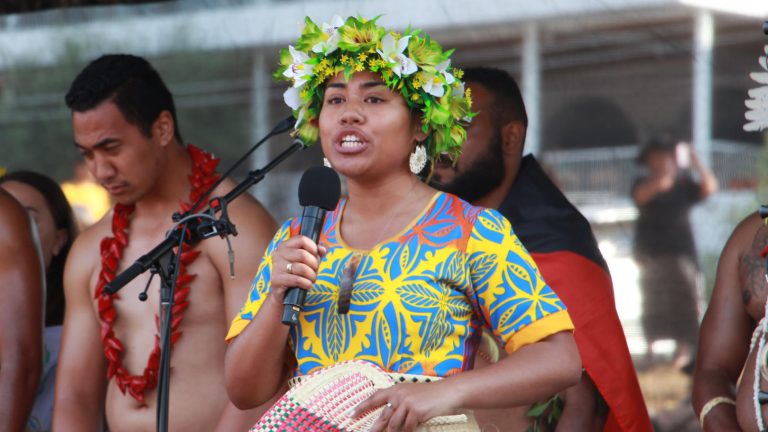

The Pacific Climate Warriors are one of many groups of ocean defenders around the world (Pictured at the Global Climate March in Brisbane, September 2019, by School Strike 4 Climate)
By now, many of us have heard of land defenders, and their work to block resource extraction projects and other environmentally damaging initiatives.
But what about ocean defenders?
A new paper in Frontiers in Marine Science, co-authored by professor Philippe Le Billon, is looking to draw attention to the many groups around the world – often Indigenous, often led by women – who are taking action to protect the marine environment, their coastal and oceanic territories, and associated human rights from existential threats.
Ocean defenders, the authors write, face the triple threat of anthropogenic climate change, historical and continuing marginalization, and in some cases intimidation, threats, violence and murder. Yet they are “out of sight, out of mind” for international policy makers.
The authors have six calls to action to protect ocean defenders:
- National governments must strengthen mechanisms that advance human rights
- Businesses have a responsibility to protect and respect human rights according to international law, and provide access to effective remedies where abuses have occurred
- Greater attention is needed to procedural rights in ocean policy-making and decisions related to development
- There is a need for increased state and private sector recognition of, respect for and protection of the rights of Indigenous Peoples, small-scale fishers, and other traditional coastal and ocean-dependent populations
- The rights of the individuals, groups, and communities who are working to defend the marine and coastal environment and human rights must be recognized, supported and safeguarded, even if they do not self-identify as ‘environmental human rights defenders’, ‘environmental defenders’ or ‘ocean defenders’
- A foundational aspect of protecting the rights of ocean defenders is to recognize, respect, center and support their political autonomy, agency and agenda


